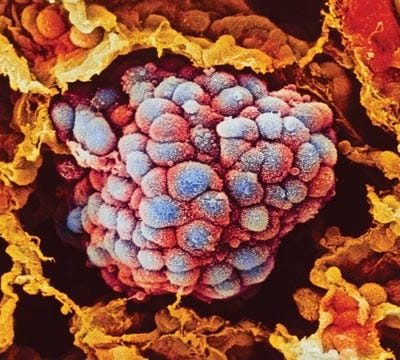German researchers may have found a way to defeat cancer using modified measles viruses to target cancer cells. The scientists at the Paul-Ehrlich-Institut in Germany have successfully treated tumor sites in animals with modified measles viruses, with some cancerous growths disappearing completely after treatment. The researchers have identified that many tumor types contain cancer stem cells that are resistant to chemotherapy and radiation therapy. To successfully defeat cancer, it is necessary to identify and neutralize these cancer cells. The scientists at the Paul-Ehrlich-Institut have identified the CD133 cell surface protein as a receptor for the modified measles virus to enter the cells. The modified virus can only infect cells that have this surface protein, and the researchers have found that the modified measles virus has antitumor activity in all animal tests.
The researchers compared their modified virus with the effectiveness of an oncolytic measles virus that is currently being studied in a clinical trial for specific cancer types. The CD133-specific virus showed at least as good antitumor activity as the standard virus, and in the case of liver cancer in animal models, it was even more effective and led to complete tumor regression. Similar clinical trials are currently underway in the United States, where a small girl with leukemia was recently completely cured using a modified HIV virus. The researchers hope that their findings will lead to the development of new cancer treatments that can target cancer stem cells and improve the effectiveness of current therapies.
The use of modified viruses to target cancer cells is a promising area of research, and the success of these animal tests is a significant step forward in the fight against cancer. The researchers at the Paul-Ehrlich-Institut have identified a specific cell surface protein that can be used to target cancer stem cells, and their modified measles virus has shown antitumor activity in all animal tests. The next step will be to test the modified virus in human clinical trials to determine its safety and effectiveness in treating cancer. If successful, this could lead to the development of new cancer treatments that can target cancer stem cells and improve the effectiveness of current therapies.










